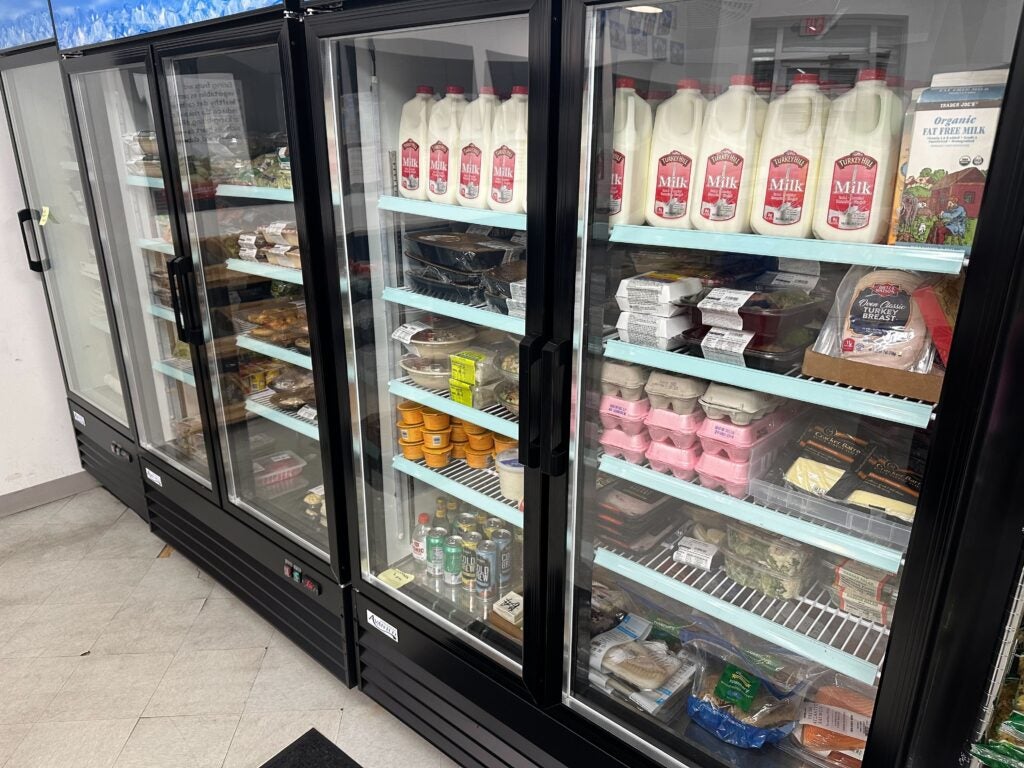Instead of volunteering during the holidays — or cleaning out cabinets and dropping off expired food for her to sort through — Murphy asks people to consider any time that’s not the peak giving season.
“As soon as the holidays are over, people disappear,” she said. “I understand that’s when people have time off but there’s lots of things you can do behind the scenes, like doing food drives for us is super helpful too.”
Volunteering niche professional expertise is valuable to nonprofits as well, whether that’s legal aid, accounting or marketing, said Damian Salas, an assistant teaching professor and associate dean of academic partnerships at Drexel University’s Close School of Entrepreneurship.
Salas has spent decades working with nonprofits serving people experiencing homelessness.
“Provide expertise, but specifically when [nonprofits] are not busy,” he said.
Or instead of an in-person donation of a volunteer’s time, a monetary donation could go even further, Murphy said.
“Money goes directly to food here. We’re probably the only pantry that buys food because we don’t get exactly what we need for the community we serve,” she said. “We buy rice, beans, oats, sugar, milk, eggs, butter. So if you’ve gone shopping lately you’ll know everything is insanely priced right now.”

In mid-November, the Sunday Love Project purchased 360 dozen eggs, costing $4.29 per carton and totaling roughly $1,500 from the food pantry’s budget.
Murphy said she listens to the community about the foods they need to thrive and makes an extra effort to offer healthier, whole-food options.
“We want this to be a dignified process for people. We don’t have any junk food in the store,” she said. “We’re trying to let people know that you can get more meals out of coming and shopping for ingredients as opposed to going to a bodega two or three times a day and spending like eight dollars on a platter.”
Harry Hayman is a senior fellow for the food economy and policy at The Economy League of Greater Philadelphia. He saw that catering big events and feeding large crowds led to much of the food not having a home afterwards.
“There’s a tremendous amount of waste in the food service industry,” he said. “Not necessarily specific to the restaurants that I’m associated with, but it’s really just the process. The whole system is rife with inefficiencies.”
But it’s not always about saving food scraps after dinners are served. It’s about the supply chain and how it’s not localized but rather global in scale, which leads to waste.
“I think the misconception about food recusing is that it’s the food on people’s plates,” he said. “It’s the big order of tomatoes that just came in from trucks across the country and by the time it gets there, there’s no demand for it.”
Hayman is pushing for a more localized food system to reduce waste and even helped change a law that allows businesses to donate food without liability of a person getting sick.
“As long as you’re giving food in good faith and not with the intent of doing any harm, you’re not liable,” he said.
Hayman also does not recommend showing up with the whole family during the holidays at the local soup kitchen, because there are too many volunteers and not enough to do.
